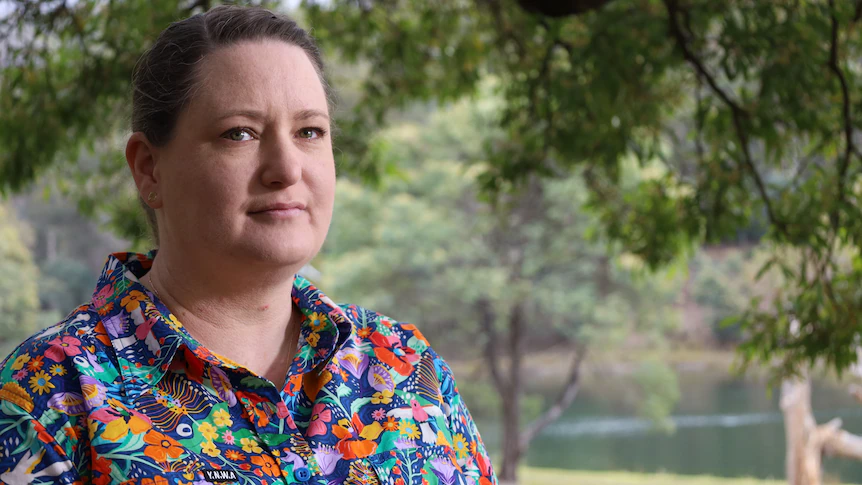By Loretta Lohberger
Copyright abc

Two years on from the Tasmanian child sexual abuse commission of inquiry’s final report, Katrina Munting has mixed emotions.
Mrs Munting, who was abused by one of her high school teachers in the 1990s, was one of the witnesses who gave the commissioners a harrowing insight into child sexual abuse in Tasmania and the systemic failures of successive governments to act.
“We aired so much of ourselves, we bared our souls, we’ve torn open massive scars and with so much hope of what potentially could happen and what we were promised that would come out of this,” she said.
The Commission of Inquiry into the Tasmanian Government’s Responses to Child Sexual Abuse in Institutional Settings looked in particular at the Ashley Youth Detention Centre, state schools, the Launceston General Hospital and out-of-home care.
It made 191 recommendations.
The Liberal state government accepted all of the recommendations and committed to implementing them in three phases.
Phase one recommendations were to be implemented by the end of June last year, phase two recommendations are to be completed by June 30 next year, and phase three recommendations by mid 2029.
Tasked with overseeing the implementation — along with recommendations from related reports and outstanding matters from the national child sexual abuse royal commission — is Robert Benjamin.
Former commissioner given ‘extensive powers’
Mr Benjamin, who was one of the three commissioners, is now the child safety reform implementation monitor, a position he said enabled him to finish the work the commission started.
“I’ve been given pretty extensive powers,” he said.
According to the government’s latest progress report, four of the 48 phase one recommendations have not been completed.
The four still in progress relate to two projects: the creation of a new commission for children and young people, and changes to professional conduct policies for state servants.
The report said the professional conduct policy changes were “almost complete”, while legislation to establish the new commission for children and young people was tabled in parliament last week.
“Ten phase two recommendations have been completed and 100 are currently underway, including the development of a new teacher registration management system, co-design of the out-of-home care system model of care with young people who have lived experience, and updates to mandatory safeguarding training for frontline health staff,” Premier Jeremy Rockliff said.
Mrs Munting is worried about the time it is taking to implement phase two by mid next year.
“There’s only been 10 of those that have been implemented so far, which isn’t many,” she said.
“I am full of hope, but I’m not seeing enough drive, I’m not seeing enough action.”
Mr Benjamin said he would soon be publishing a report that sets out a “baseline” of where Tasmania is at in relation to implementing the reforms recommended by the commission of inquiry.
From there, he will look in detail at each of the recommendations to make sure those that the government said were completed were complete, and to ensure the promises made by the government and parliament in relation to the remaining recommendations can be achieved.
He said he was also aware of Tasmania’s challenging budget situation, but said he and commissioners Marcia Neave and Leah Bromfield drafted their recommendations knowing that Tasmania had limited resources.
“I intend to make sure that those resources are applied in a sensible and cost-effective way to give the results that the commission of inquiry set up, because they were structured in light of that,” he said.
Closing Ashley a ‘difficult problem’
One of the recommendations the commissioners made was that the Ashley Youth Detention Centre in Tasmania’s north be closed “as soon as possible”.
The government originally planned to do that by the end of last year, but that deadline has been extended by the government several times and the centre is now expected to close in 2028.
The centre is to be replaced by a new facility with a therapeutic focus.
Tasmanian Council of Social Service chief executive Adrienne Picone said the youth justice blueprint released by the state government in December 2023 “has the potential to be quite transformative”.
The government said the approach would put children front and centre, while trying to break the “cycle of offending”.
“We really need to ensure that all of the decision making that happens is informed by the evidence and is about early intervention, prevention and diversion to ensure that we understand why children commit crimes in the first place, and what we can do to stop that from happening again,” Ms Picone said.
Mr Benjamin said he was concerned about the time it was taking to close Ashley, but he also acknowledged it was “a difficult problem”.
“Because not only do we have to build a new facility, we have to build the human infrastructure around that facility and broader facilities,” he said.
Commission’s work leads to criminal and workplace investigations
As well as the recommendations and the work to implement them, the commission’s work has also led to criminal and workplace disciplinary investigations.
As a result of this work, two education department employees have been convicted of crimes and jailed.
Five state servants had their employment terminated after it was found they breached the state service code of conduct.
Seven alleged abuse perpetrators resigned from the state service or had their contracts expire before disciplinary processes could be completed. There are three disciplinary investigations still underway.
The three employees subject to the continuing investigations remain suspended on full pay.
Within Tasmania Police, three officers were found to have breached the code of conduct, while one inquiry wasn’t able to be completed because the officer died.
‘Was it worth it?’
Two years on from the report, Mrs Munting said the impact was continuing to be felt by many victim-survivors who were involved with the commission of inquiry.
“There’s people that have lost their jobs, killed their careers, broken families and [there’s been] a lot of regression in people’s mental health that is still being battled now,” she said.
“…I don’t think [that] was considered at the onset because many of the victim-survivors, like myself, we had so much hope for what would come of this, and we were so grateful to be finally heard and believed.



